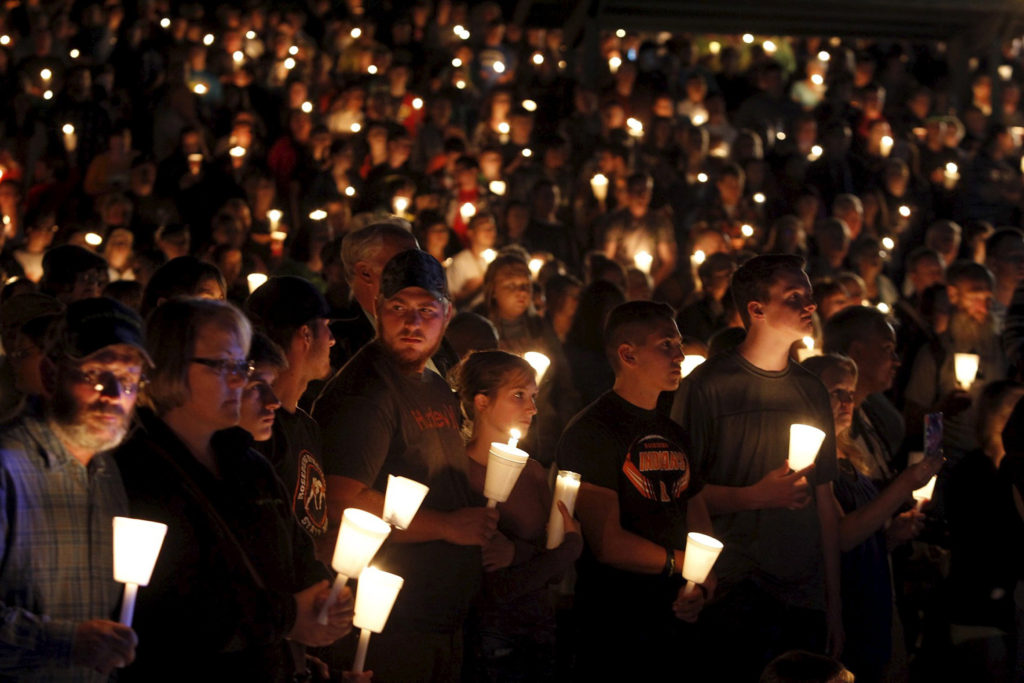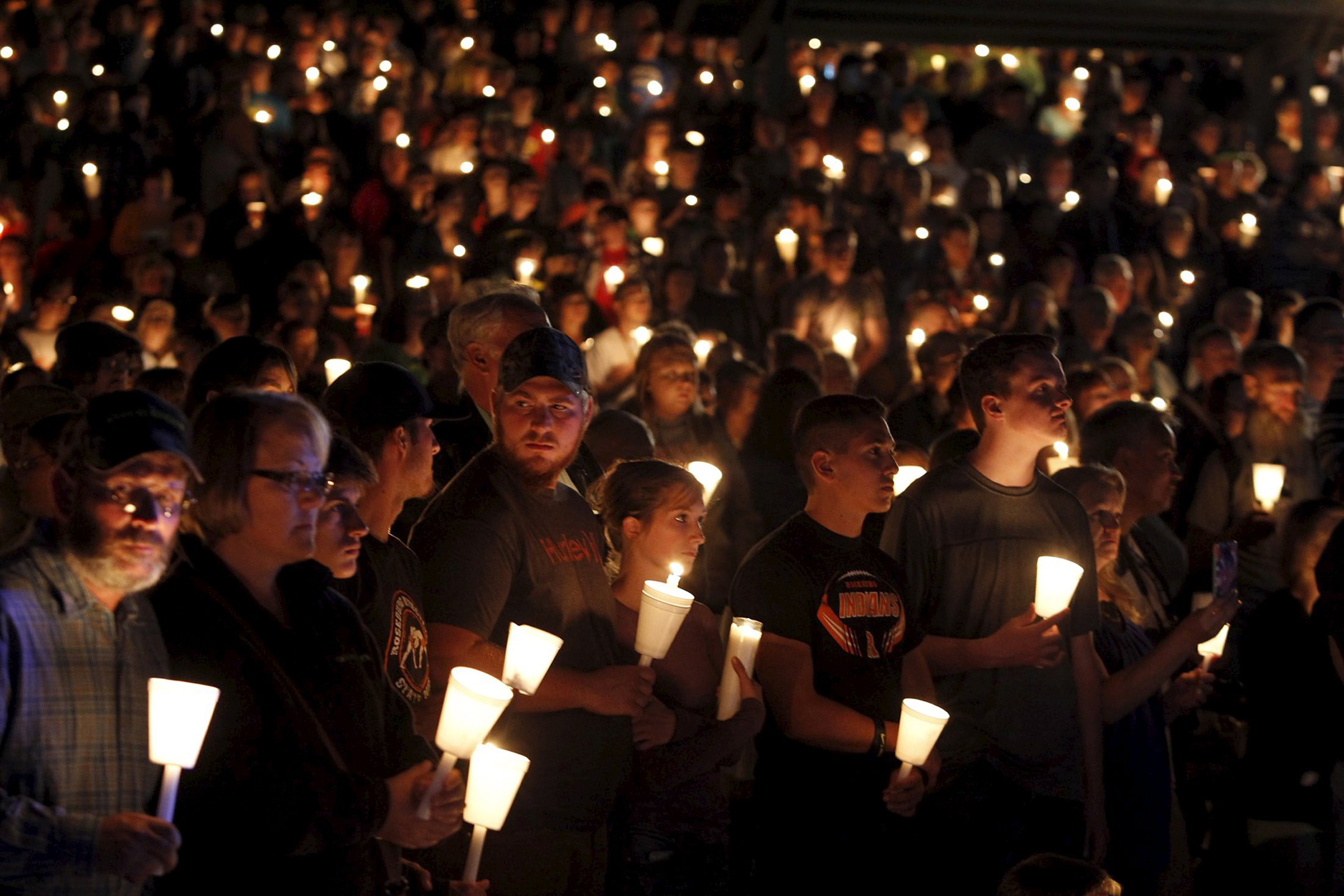
[dropcap]I[/dropcap] was still coming down off the high of the papal visit and engrossed in Bishop Thomas J. Olmsted’s exhortation to men when the news broke of yet another school shooting.
This time, it was at a community college in a small town in Oregon where Chris Harper-Mercer, 26, killed nine people and wounded nine others.
Chris Mintz, 30, was shot seven times when he charged straight at Harper-Mercer during the rampage. Mintz, an Army veteran who was determined to stop the gunman even if it meant sacrificing his own life, is recovering from serious injuries.
That’s the kind of heroism we’re beginning to see more of, thank God, as these attacks grab headlines more and more frequently. In August, three American men and other passengers overpowered a would-be attacker from shooting up a train full of innocent people in France.

Men like Chris Mintz and the others who willingly risk their lives to save others exemplify what real men do: run right at the enemy, intent on stopping him and protecting the innocent.
Not every enemy we face is carrying a gun though. More often, it’s a spiritual enemy we face, one who is just as deadly and who is determined to destroy us. We must not allow him to succeed.
Bishop Olmsted’s letter to men is a call to battle, a call to fearlessly embrace the struggle for holiness through self-denial and self-mastery. When men do that, they help lead their families closer to Christ. When they don’t, families flounder. Women and children suffer.
As a wife and the mother of five sons, I am deeply grateful that our bishop is calling on men to take up arms and get serious about holiness. Our society is in the midst of a crisis of manhood, and the Church is feeling its effects keenly. Bishop Olmsted’s letter faces the problem squarely.
“Do not hesitate to engage in the battle that is raging around you,” the letter implores. The world is under attack by Satan, and many men have been unwilling to step into the breach, Bishop Olmsted writes.
To every woman out there who’s prayed and hoped her husband would “man-up” and be the spiritual leader of the family, I say, get him to read this letter and pray he will do so with an open heart.
Bishop Olmsted offers practical advice, and he also holds up spiritual heroes for men to emulate. Some of them faced mortal danger the way Chris Mintz did.
St. Maximillian Kolbe is one such hero. A prisoner at Aushwitz, he voluntarily took the place of another prisoner who was to be starved to death by the Nazis. St. Thomas More is another. A 16th-century statesman loyal to the pope, he was beheaded for refusing to acknowledge the king of England as the head of the Church.
It’s interesting to note here that Chris Mintz, St. Maximillian Kolbe and St. Thomas More all shared one common trait: they trained hard for battle. Mintz was an Army combat vet. St. Maximillian Kolbe and St. Thomas More each practiced stern self-denial and had intense prayer lives. Without such preparation and mental toughness, none of these men would have had the courage to face lethal danger. That kind of bravery is something that isn’t done on a whim. Instead, it’s the fruit of someone who has developed the virtue of courage through self-sacrifice.
In a self-indulgent era in which real heroes are rare, it’s refreshing to hear this call to arms, this recognition that we are in the midst of a battle for our souls. Our men need to be encouraged to fight for their families by first conquering themselves and surrendering to God.
Bishop Olmsted’s letter ought to be read and studied by all Catholic men and women. On behalf of women everywhere, I say bravo. We need our men to accept this challenge to be the fighters God created them to be.







